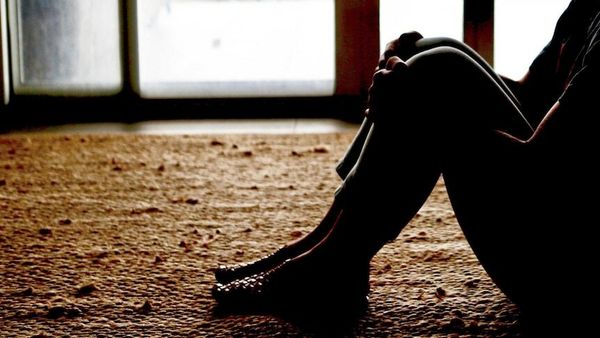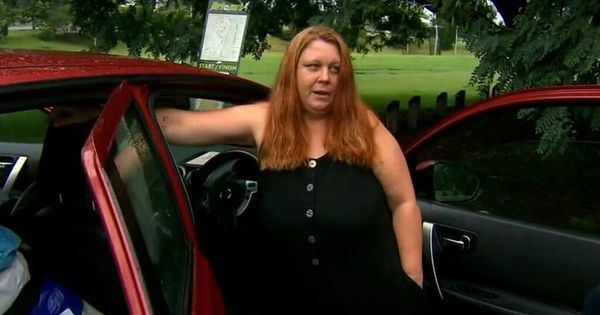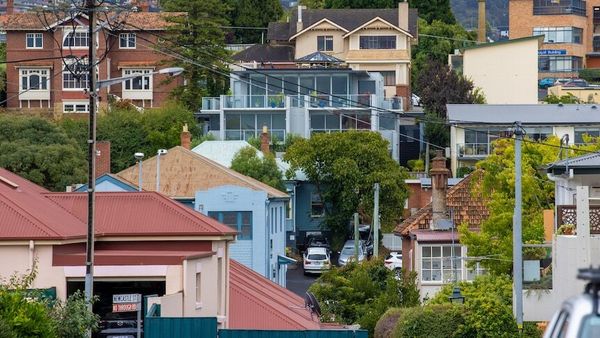Nicola Moorhouse has less than a fortnight to find a new home.
For almost three months, the Newcastle single parent has been searching without any success.
Affordable rental accommodation is not easy to find in the NSW Hunter region, especially for people with accessibility requirements.
The 45-year-old is legally blind and has two autistic daughters.
During the six years in their current rental, Nicola complained about the condition of the house, particularly the bathroom.
"The vanity is falling apart … while I've been living here, it's got worse and worse," Nicola said.
"The shower tray is very rusty, the floor tiles have been coming off... it's damp and mouldy."
The landlord has issued an eviction notice so that the three-bedroom home can be renovated.
While the family has been told they can return after the work is complete, it will not be for the current price of $415 per week.
"They're looking to put the rent up by over $250 a week," Nicola said.
"I'm on a disability pension and I cannot afford that."
'Rental crisis' making previously cheap homes unaffordable
A recent report found rental prices in regional parts of Australia rose 18 per cent in the two years to late 2021.
And while finding affordable rentals is becoming increasingly difficult across Australia, people with accessibility requirements can find it even harder to find suitable homes.
Nicola's NDIS support coordinator Bellina Pannowitz said many people with disability were experiencing homelessness, because they needed certain features in a home that other people did not.
"This whole area is in such a rental crisis that no-one really sees how many people are at a loss because of it," she said.
Standing in the Newcastle suburb of Hamilton, Nicola said it used to be a "cheaper area", but both values and rent prices had dramatically increased.
"It's tricky … areas that you would have thought of being quite cheap are now out of my price range," Nicola said.
"Even a two-bedroom house in this area is now around $550-$600 a week and I cannot afford that."
The family, which includes 18-year-old Harper and 14-year-old Mili, has been on the waiting list for social housing for six years and on the top priority list for two years.
Last October, before they knew they would be evicted, Nicola knocked back an offer of a social housing property because it was not appropriate.
"I took my support worker with me and she was very adamant that it was not suitable for me," Nicola said.
"She was worried that I would trip and bang my head on the vanity."
Nicola remains "hopeful" that another social housing property will become available.
'A hole in the system': Family running out of options
Searching for homes online in the open market is not easy for Nicola. They have a condition called "visual snow syndrome", and others must fill out the application forms.
"It's very difficult for me to gauge off photographs what a place looks like because anything that's on a screen, anything that's got light behind it, I can't see very well," Nicola said.
Ms Pannowitz has been phoning organisations and the Department of Housing to try and find accommodation for the family.
She described Nicola's situation as a "crisis".
"There's definitely a hole in the system … Nicola doesn't have the luxury of just taking any accommodation," Ms Pannowitz said.
"It's heartbreaking … Nicola is about to become homeless with two children, all three of them with disabilities."
Ms Pannowitz, who works for registered NDIS provider Accomplished Choice Solutions, said "crisis accommodation" might be Nicola's only option.
But she said that could end up being expensive too, because the children might not be able to live with Nicola, and the family would need to find somewhere else to store their furniture.
Stressful search for home puts education on hold
With the "overwhelming" search for a home, Nicola has made the "devastating" decision to defer completing an honours degree at the University of Newcastle.
"I'm very passionate about learning and it distracts me from my disability," Nicola said.
"But more than anything, it's my future and it's the way I see myself getting out of poverty and getting out of the situation that I am in now."
Leaving Newcastle is not a solution as it would mean being further away from Mili's school and disability support services like Vision Australia.
"The further you go out of the area, you do lose that support network," Nicola said.
"My support workers … who are amazing people … may not be able to come out to me and then I'd have to try and get new people."
The ongoing search for a home has left Nicola "constantly feeling stressed" and like they have let their daughters down.
"It's not just impacting on my mental health, it's also impacting on my daughters'," Nicola said.
"It's a horrible dark cloud that is hanging over me … I feel like I have failed because I can't find somewhere for my family to live."










